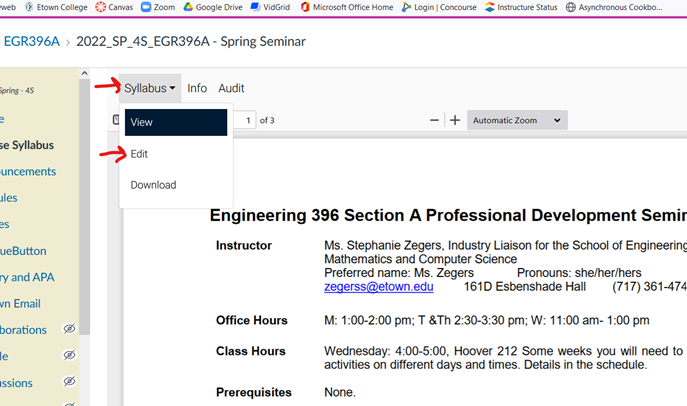Because discussion helps students process information, it remains important to learning across all academic disciplines and delivery modalities. With the goal of getting students to practice using the concepts they are learning through the course material, designing a discussion requires skills different from giving a lecture.
Online forums embedded within the course LMS are an accessible way to facilitate class discussion, regardless if your course is face to face, online, or hybrid/hy-flex. Not only does an online discussion engage students with course material before coming to class in person, it also helps them reflect on material they have learned while also giving them time to absorb content and articulate responses.
Discussion-based teaching focuses on active learning principles and prioritizes discourse rather than passivity. Through an active learning approach to discussion, important concepts and skills are reinforced and explored through the community of inquiry. This interchange provides students with opportunities to think about, talk about, and figure out course material through guided practice and scholarly exchange.
Some additional benefits of online discussion for learning is that it increases students’ interest, comfort level, and sense of belonging. Through engaging in discussion, students get different perspectives on the topic. Good questions and thoughtful answers can get students to think deeply and make connections; this empowers learners and fosters greater agency and autonomy. The online discussion forum approach to engagement also helps students who might otherwise struggle to speak up in a face-to-face class because it provides them an opportunity to concentrate and formulate responses before interacting; this “buffer” allows learners to reflect on the topic and to think about the material in critical ways.
Providing open-ended prompts for discussion that elicit critical reflection, communicating clear expectations on both assignment and assessment, and allowing the community of inquiry to unfold organically are vital aspects of the mindful scaffolding approach to safeguarding the learning environment across modalities. A student’s ability to synthesize, to question, to engage, to utilize concepts, and to hypothesize can be optimized through these high-engagement/low-stakes learning opportunities.
If you would like additional guidance on designing effective and engaging discussion activities, please reach out to the Teaching and Learning Design Studio – and check out these helpful resources:
The Art and Science of Successful Online Discussions
Constructing Effective Online Discussions
21 Ways to Structure an Online Discussion, Part 1
21 Ways to Structure an Online Discussion, Part 2
21 Ways to Structure an Online Discussion, Part 3
21 Ways to Structure an Online Discussion, Part 4
21 Ways to Structure an Online Discussion, Part 5

